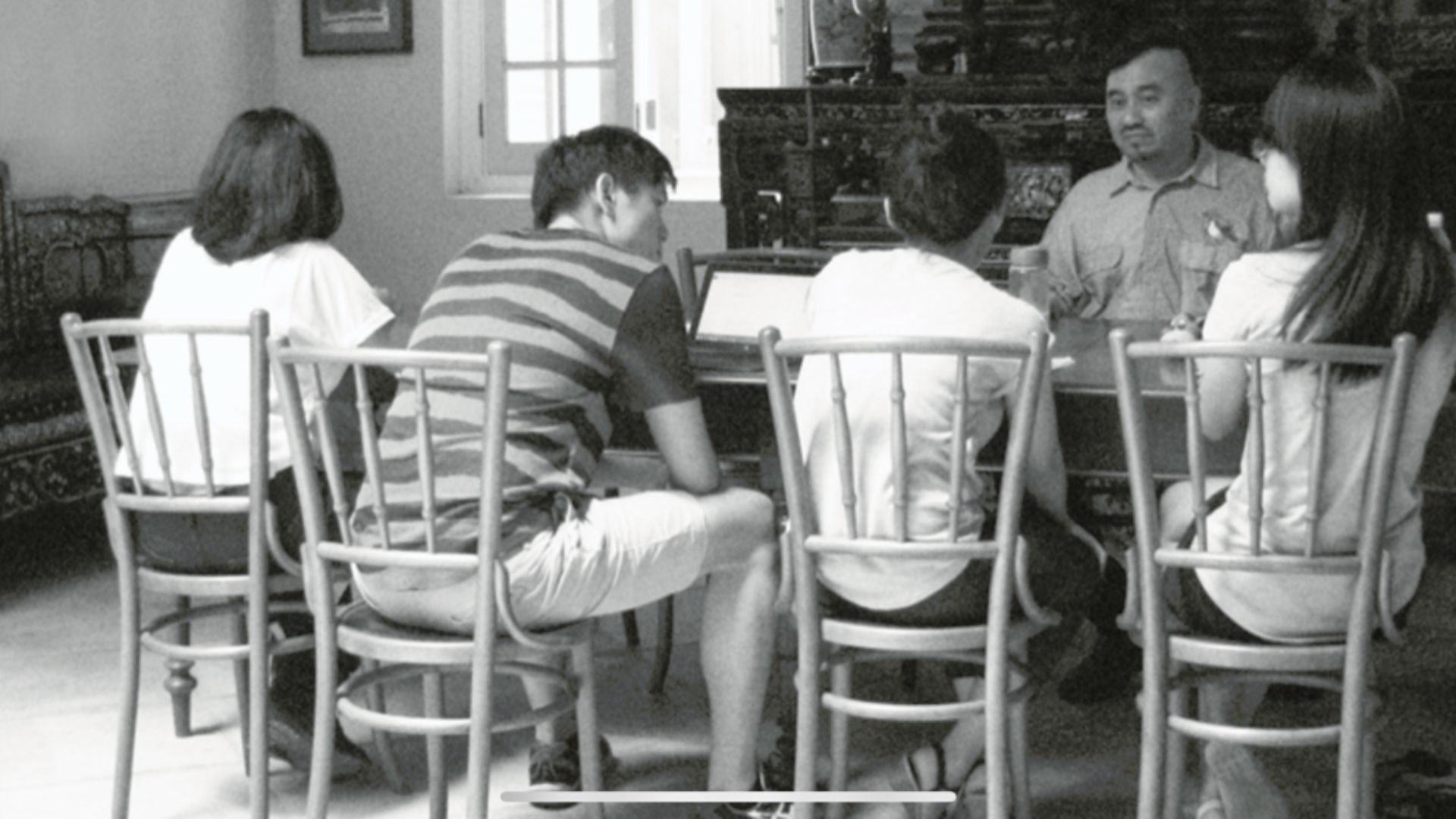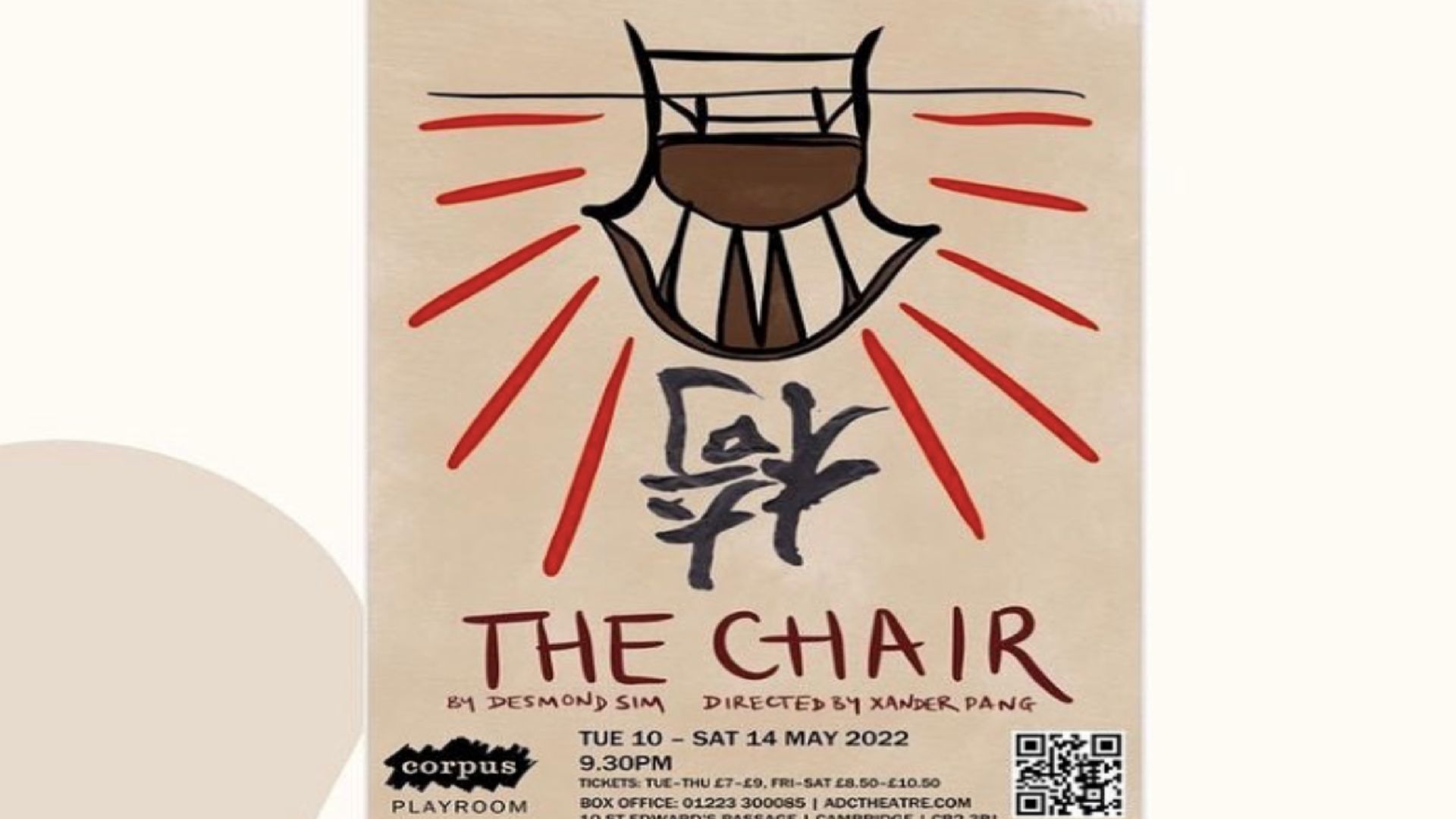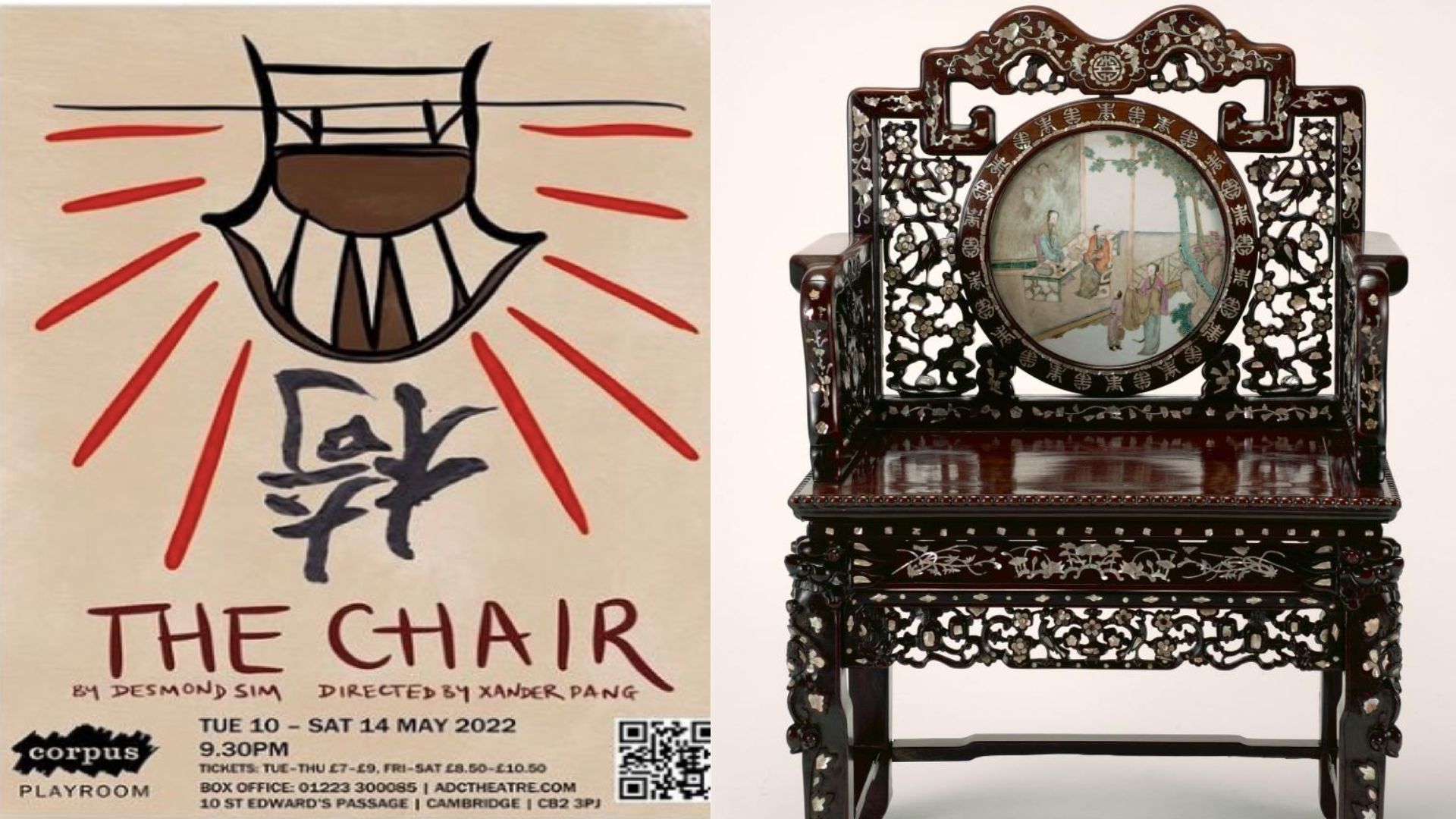The Chair, a Singapore play written in 2004 by local poet and playwright Desmond Sim, may be making its debut at the Edinburgh Festival Fringe in 2023.
This, after it played to sold out houses at Cambridge University and to rave reviews. The Tab, a site covering youth culture and student culture, and run by journalists, called the production “enlightening and heartfelt”, and “explores what it means to be Singaporean”.
The Tab, which has three million readers and thousands of student reporters, says the entire production is also built around “a strikingly simple, yet genius setup: the all-seeing chair takes centre stage, and red ribbons spool out from all corners of the darkened stage to attach themselves to the chair”.
In an email to the playwright, blind actor and performer Jasmin Thien wrote, “You might be pleased to know that it was the first production in Cambridge with a fully Southeast Asian cast, and it did really well both with reviews and ticket sales. I have been in over 20 productions during my time at Cambridge and I can confidently say that The Chair was my absolute favourite show that I’ve done, so thank you. It made me so proud to be Chinese and Southeast Asian, and I found so much of the script relatable and heartwarming even though I am not from Singapore myself.”

Thien played multi-roles, including Mrs Lim and Evelyn, in the play.
The Peranakan heritage
The Chair, written by Sim in 2004, was his critique of the prejudicial emphasis of Peranakan antiques and heritage towards monetary values. Constantly at the centre of the play is, of course, a chair, serving as the link to events that happened in different places and at different times.
It traces the transition of a Singapore family from immigrant labourers to educated businessmen and women; where the members of the family gain affluence, survive a world war, and fight among themselves, with a chair witnessing it all.
Speaking to TheHomeGround Asia through email, director of the Cambridge University production Xander Pang says he was originally introduced to The Chair when reading it as part of Sim’s collection of student plays, and “was immediately struck by not only the depth of storytelling, layering of cultural and historical motifs across the text”.

“When I was deciding to put on a show in Cambridge, my intention was always to showcase a piece of theatre that was centred around specific cultural and historical storytelling close to my heart. Having lived in Singapore my whole life, I wanted to showcase a slice of my life as authentically as possible,” he says.
It was no wonder that when he was looking for a script, he “focused very heavily on finding a piece of theatre that was as unapologetically Singaporean as possible, including accents, language and content”.
“With The Chair, the script possesses all of that. I feel that local theatre sometimes shies away from using the Singaporean accent. I wanted to do the opposite by producing a piece of theatre for the audiences that the show itself was representing. Not only does the play showcase the nuances of Singaporean behaviour, but it also tells the Singaporean story, making it a perfect way for me to fully present a slice of Singapore’s culture,” he says.
“Through generations of Singaporeans, the show not only tells us about the history of the country, but also how family ties are formed and maintained within the Peranakan side of our society. Singapore and Cambridge are two very different places. My goal was to highlight this, and force audiences to feel as though they were stepping into someone else’s world, allowing them to appreciate it, even if they did not fully understand it,” Pang adds.
The challenges: Doing the script justice, not pandering to the local audience
It is not the first time a tertiary institution has staged The Chair. The National University of Singapore (NUS) staged it in 2015 as the launching pad and inspiration for original short plays written by NUS undergraduates from scripts created in a playwriting workshop by Sim.

But it has, for the first time, been staged by a university abroad.
Pang says when he asked for Sim’s permission to stage his play, Sim not only responded immediately, but was “extremely forthcoming with helping us acquire the scripts to get the show produced”. “With him being so helpful in allowing us to do the show, I was more nervous about doing the script justice,” he adds.
Another challenge that faced the cast and crew was making sure that the production “never once pandered to the local audiences”. The team also made sure that it never translated any dialogue, and even went to the extent of adding local phrases and expressions if they seemed natural to cast when performing.
“This was challenging, as it is often tempting when producing an international piece to make it more “understandable” for local audiences. However, the goal was always to present Singapore in its most raw and natural form, to properly highlight its beauty and allow audiences a sense of authenticity,” Pang says.
Apart from the challenges of a minimalist production design to focus on the storytelling, Pang also cut down the number of required actors for the show to just four, which was less than what is stated in the script.
“This meant that my actors were working extremely hard to engage the audiences, and making the magic of the text come out naturally. My direction for the cast was also very focused on maintaining an intensity and energy, really allowing them to stand out in their performances,” he says.
Interestingly, The Chair was one of the least challenging productions for Thien “in terms of navigating my blindness”. She has played sighted characters and did not use her cane on stage.
“I rarely find that my blindness poses much of a challenge except for perhaps productions where there is an abundance of sets and props to navigate around without the aid of my cane. Because The Chair had such a minimal set, that is, a lone chair in the centre of the stage, I did not have any trouble performing the show at all,” she says.

Responding to the casting call for The Chair, Thien was excited as it was the first time she had seen “a move to bring Southeast Asian voices to the Cambridge student theatre scene.
“There has been a growing hunger for diverse voices in theatre, and especially in Cambridge student theatre which has always been extremely white, and I wanted to be part of a production showing the unique experiences and stories of this,” she says.
For Thien, one of the biggest challenges as a cast was deciding how to stage the scene about the Japanese invasion, particularly the part where Evelyn was sexually assaulted by a Japanese officer.
“We ran the risk of minimising the sheer trauma of an experience which we knew many of our ancestors had faced. At the same time, over-playing it based on our conjectures of what it could have been while we have not personally experienced anything remotely similar felt like it would be insensitive to everything they had survived. Finally, we chose to make the scene as minimalistic as possible. That is, having Evelyn sit alone on the chair narrating the story. By stripping all the bells and whistles and letting the words shine through, we felt that was the best way to shed light on the very human experiences of loss, suffering and trauma,” she tells TheHomeGround Asia.
Pang says the local audience really enjoyed being immersed in a culture that was very different from their own. “While they might not have understood the nuances of the language, they could appreciate the story and storytelling, and also appeared to enjoy not being able to fully understand another person’s culture. Not grasping the finer details seemed to actually improve the experience for them, as it allowed them to feel more like they were engaging in something new, different and exciting,” he says.
The Singaporean audiences were also receptive to watching a piece of theatre that reminded them of home. “With such strong efforts from the production team and cast as a whole to make the show as authentic as possible, I think Singaporeans really appreciated being in an environment that felt like home.
As a director, it was quite heartening to see Singaporeans not only coming in groups to watch the show, but also bringing their friends from other cultures to expose them to a piece of home. I, for one, brought many friends from outside of Singapore as a way to show them a bit about my culture. In a way that is far better than any stories I could tell,” he adds.
Giving The Chair a seat at the Edinburgh Festival Fringe
It is no wonder both Pang and Thien feel it is long overdue to have a play from Southeast Asia, let alone Singapore, staged at a celebrated international arts festival as the Edinburgh Festival.
“Most people don’t even remember that Southeast Asia exists when they talk about Asia. I think an unapologetically Southeast Asian play about Southeast Asian experiences is long overdue at a place of such outstanding reputation as the Edinburgh Fringe. I know that The Chair would do really well at the Fringe. Des (Sim) has written such an incredible script. It has definitely changed my life and made me proud of who I am and the people I’ve descended from. As for Des coming to see it in Edinburgh, that would be the absolute dream,” Thien says.
In her email to Sim, she wrote, “I would very much love to take The Chair to the Edinburgh Fringe Festival next August 2023. I was involved with a show at Fringe this year and I feel it is high time that we brought Southeast Asian stories and representation to the festival. There is an increasing demand for new voices in the industry.”
Chuffed by her note asking permission to put the production at the festival fringe next year, Sim posted the full email on his Facebook wall with the comment, “Of course, I said YES!”
RELATED: New play examines the importance of being Kwa Geok Choo
Join the conversations on TheHomeGround Asia’s Facebook and Instagram, and get the latest updates via Telegram.





























